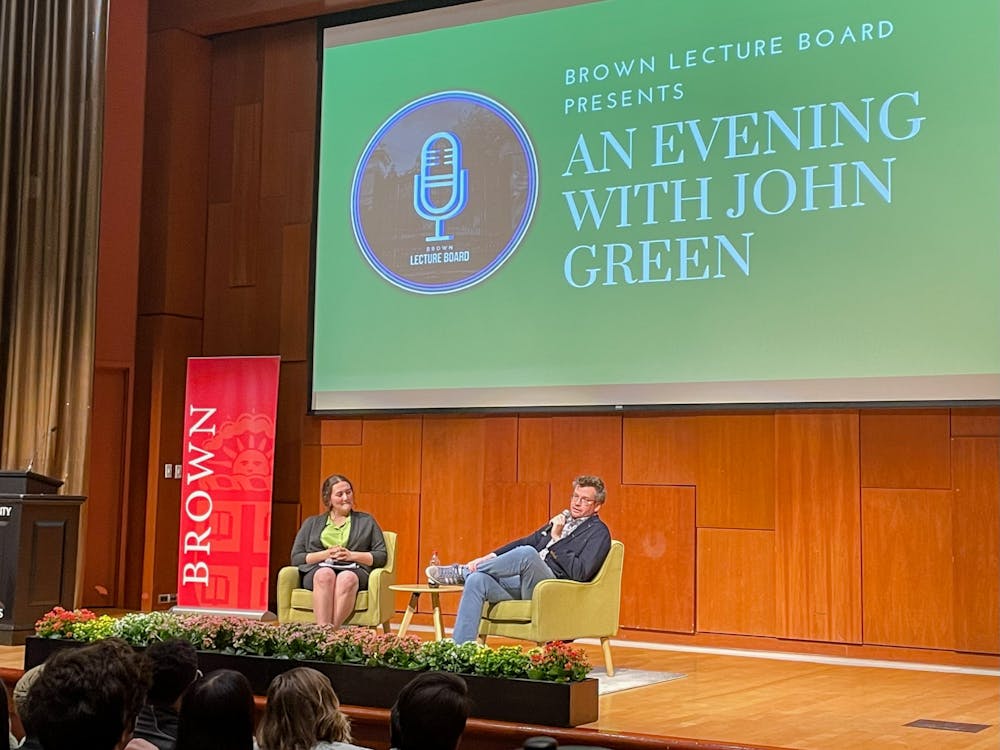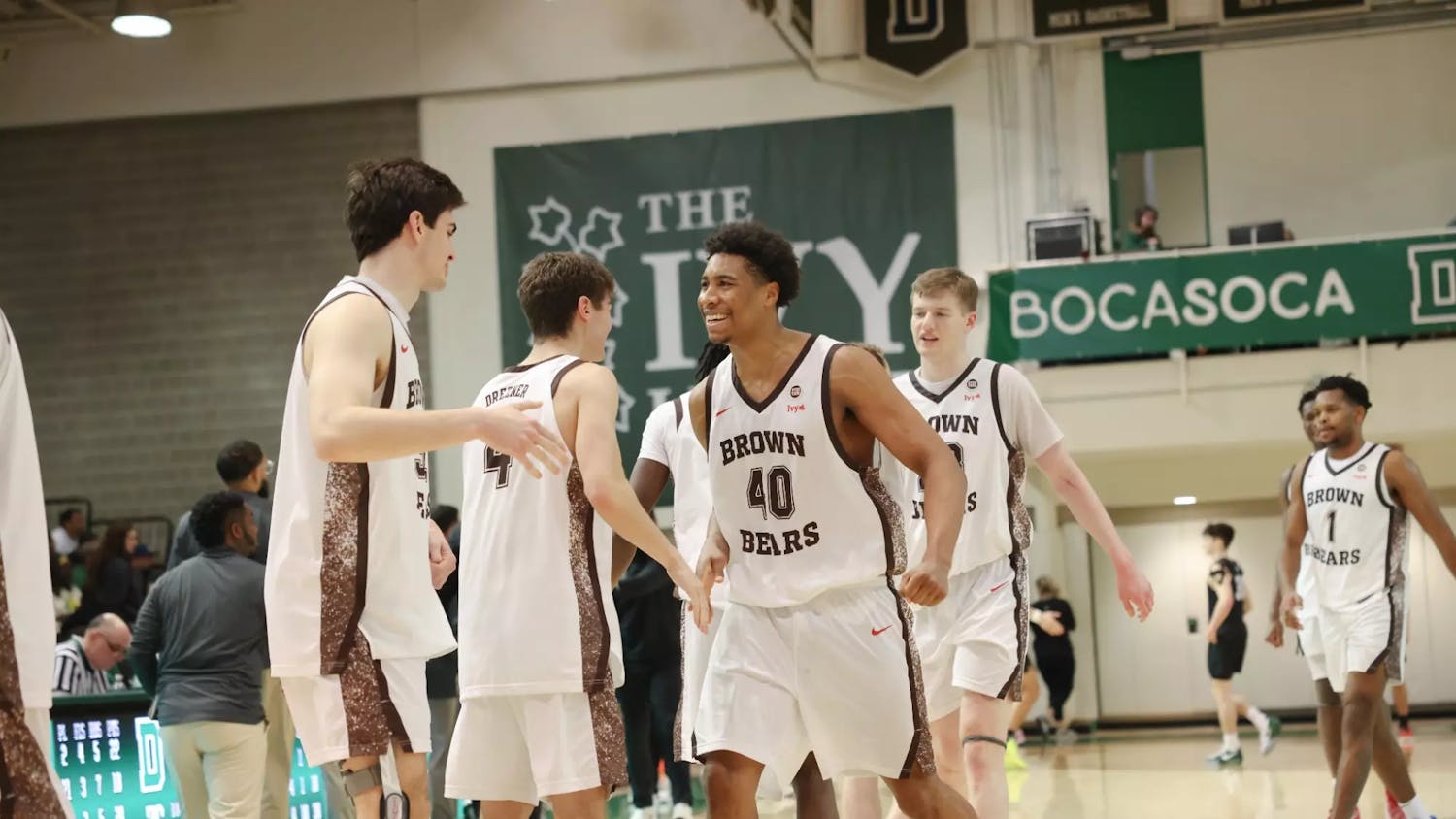Award-winning, bestselling author John Green addressed the student body last night at the Salomon Center in an event organized by the Brown Lecture Board.
As the author of “The Fault in Our Stars,” “Looking for Alaska” and “Turtles All the Way Down,” Green is widely considered to be the quintessential writer of young adult fiction. Recently, he wrote a collection of essays called “The Anthropocene Reviewed,” in which he reviews different aspects of “the human-centered planet” in the “geological age” of the Anthropocene, according to the book’s description.
Green’s books have received several accolades — including a Printz Medal, a Printz Honor and an Edgar Award — and he has twice been a finalist for the LA Times Book Prize, according to his website. In addition to writing novels, Green has created two YouTube channels — the video blog channel vlogbrothers and the educational channel CrashCourse — with his brother Hank.
Green recalled the start of his career doing data entry for the book review magazine Booklist, a job which gave him insight into the life-cycles of books and the low success rate of new authors. "I think I was the rare first-time author who did not have high expectations," he said.
"I just got very lucky,” Green said about the success of his first novel “Looking for Alaska.” “I sent it to publishers and one of them liked it, and that person is still my publisher today."
He had no idea the book would be so successful, he said. If he had known the novel would gain such a wide readership, he would advise his 23-year-old self to “fictionalize a little,” Green said.
Green also admitted he hasn’t read “Looking for Alaska” in 18 years, and he doesn’t even remember what it’s about. “Part of being a writer is you don’t really like any of” your books, he said when asked which of his works is his favorite.
Even after he achieved success as a widely read novelist, Green faced the financial reality of being an artist. His financial situation contributed to his decisions to sell the movie rights to his books, especially around the time his second son was born, he said. “If a movie company was going to write me a check, I was probably going to say yes.”
But the first two movie adaptations he worked on were “bad experiences,” especially for the adaptation of “Looking for Alaska,” the production of which was eventually canceled. Green said the film studio gave him almost no control over the creative process, which made him reluctant to sell the movie rights to “The Fault in Our Stars” at first.
He explained that saying “yes” to the production of the movie is the last stage in the process that the author has much control over.
Still, his experience with “The Fault in Our Stars” was much better than his previous experiences, as he always felt “welcome and included in the conversation,” he said.
"The generosity that people have shown to my work while adapting … has really been lovely and has meant a lot to me,” Green said.
Although he has always been aware of the collaboration that goes into the creation of any art — contrary to the popular belief that it is an individual experience — it is seeing his movies being made that helped him understand this on a deeper level, he said.
“I understood that I wasn’t really writing my own books; lots of other people were writing them with me,” Green added.
Green also discussed writing about mental health and his own experience with OCD and depression. When he writes about mental health, he is trying to write about “how isolating it can be because it’s so hard to find language to describe the pain,” he said. He explained that people tend to describe pain using only figurative language -– even to the doctor.
“We talk about what pain is like because we can’t talk about what it is,” he said. “The fact of pain itself resists direct description from language because it is so intensely personal.”
With “Turtles All The Way Down,” Green hoped to find some direct form of describing “psychic pain” instead of the “endless reliance on metaphor or figuration.”
Green also talked about his online projects with his brother Hank, with whom he started making YouTube videos in 2007. “I remember trying to explain to my editor that (making) YouTube (videos) and writing books are the exact same thing,” he said. “They have different grammar but are the exact same language to me.”
Green explained that he tends to move between different forms of creative expression when he gets bored of one. That is why he turned to podcasts at a time when he felt like he could not write books anymore, he said. But, he shared that making a podcast inspired him so much that he eventually turned back to writing as well. The podcast, “Dear Hank & John,” has been releasing episodes since he and his brother conceived it in 2015.
Green also spoke briefly on writer’s block. “The hardest part is starting,” he said, “and then once you start — it can be bad, it doesn’t matter … just try to keep the Google doc open.”





